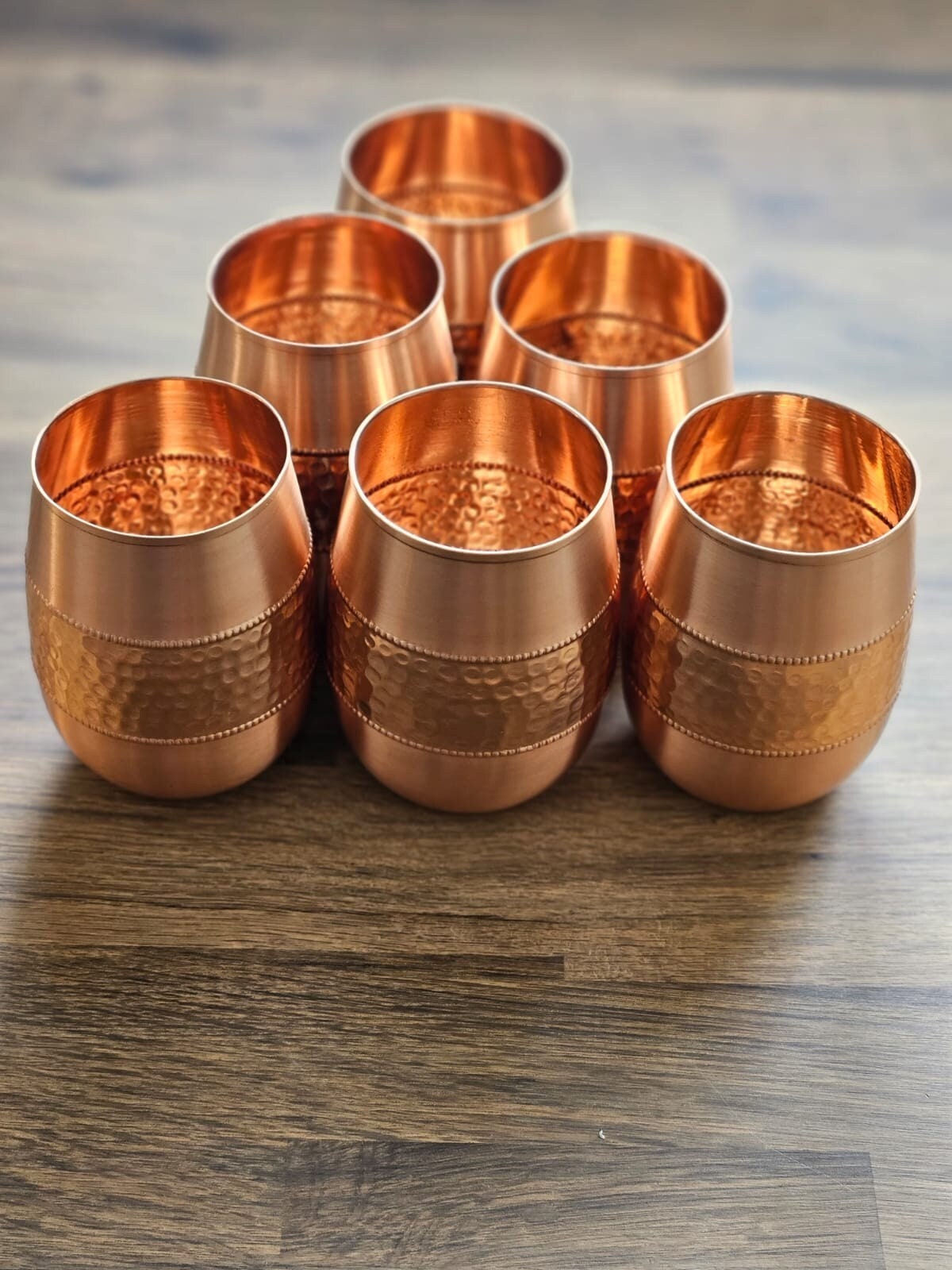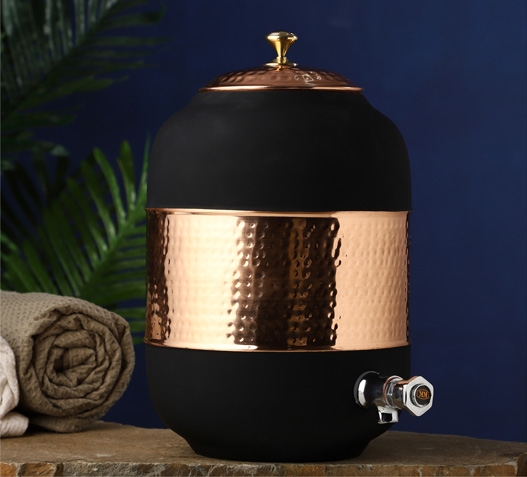The Ultimate Overview to Sustainable Coping With Eco-Friendly Copper Products
The Ultimate Overview to Sustainable Coping With Eco-Friendly Copper Products
Blog Article
Discovering the Diverse Applications of Copper Products in Modern Industries
Copper items have established themselves as essential parts across a myriad of modern-day markets, mainly as a result of their amazing conductivity, pliability, and resistance to deterioration. From improving the performance of electric systems to playing a vital duty in renewable resource modern technologies, the adaptability of copper is evident. Additionally, its recyclability placements it as a sustainable choice in production and electronics. As industries increasingly prioritize development and sustainability, the diverse applications of copper call for a closer exam, specifically regarding their prospective influence on future environmental practices and technical developments.
Electric Applications of Copper
Copper is a necessary product in the electrical sector, representing about 60% of the complete demand for non-ferrous steels globally - Copper Products. Its superior electric conductivity, which is virtually twice that of light weight aluminum, makes it the recommended selection for a variety of electrical applications. From circuitry systems in household and industrial buildings to high-voltage power transmission lines, copper makes sure efficiency and dependability in power distribution
Along with electrical wiring, copper is essential to the production of electrical components such as motors, generators, and transformers. These components utilize copper's thermal conductivity and malleability, necessary for warmth dissipation and efficient performance. Furthermore, copper's resistance to deterioration enhances the lifespan and toughness of electric systems, making it an economical option in the lengthy term.
The growth of renewable resource resources, such as solar and wind power, has additionally boosted the need for copper in electrical applications. As markets shift towards lasting energy solutions, copper's duty comes to be much more vital. Overall, the flexibility and efficiency characteristics of copper solidify its standing as a foundation product within the electric market, driving innovation and efficiency across numerous applications.
Pipes and Piping Solutions
In modern pipes systems, the choice of materials dramatically influences both functionality and durability. Copper has actually become a preferred choice as a result of its special residential properties, including corrosion resistance and antimicrobial features. These qualities make certain that copper piping continues to be sturdy and risk-free for carrying potable water, a crucial factor to consider in household and industrial applications.
Among the crucial benefits of copper in pipes is its capacity to endure high temperatures and stress, making it appropriate for a variety of applications, from warm water systems to home heating and cooling networks. Additionally, copper's versatility enables less complicated installment in complex piping layouts, decreasing the risk of leaks and failures.
An additional noteworthy benefit is copper's long lifespan, usually exceeding half a century with appropriate upkeep. This durability not just decreases replacement expenses however likewise contributes to sustainable practices by decreasing waste. Copper's recyclability straightens with modern environmental requirements, promoting a circular economy within the pipes industry.
Copper in Renewable Power
The flexibility of copper prolongs past pipes applications, playing a vital role in the renewable power industry. In solar panels, copper is utilized in solar cells and circuitry, assisting in reliable energy conversion and transmission.

Additionally, as the global demand for electrical vehicles (EVs) rises, copper's role in battery systems and billing infrastructure becomes even more significant. The product's capability to carry out electrical energy efficiently is important to the performance of EV batteries, boosting variety and charging speed.
Copper's Function in Electronics
Electronic devices manufacturing relies heavily on copper's remarkable residential or commercial properties, especially its high electric conductivity and thermal performance. These characteristics make copper an excellent choice for a vast array of electronic parts, including adapters, circuit card, and electrical wiring. The steel's capability to successfully look at these guys transfer electrical signals guarantees marginal energy loss, which is essential in high-performance electronic gadgets.
Additionally, copper's thermal conductivity plays a substantial function in heat dissipation, shielding delicate elements from overheating. This is specifically crucial in modern-day electronics, where small styles result in raised warmth generation. Copper is likewise preferred for its pliability and ductility, enabling it to be easily shaped right into elaborate designs that satisfy the demands of advanced electronic applications.
With the rise of consumer electronics, telecommunications, and electrical automobiles, the demand for copper in the electronics field proceeds to grow. As innovations in technology develop, copper stays integral to accomplishing greater efficiency and reliability in electronic items. Its recyclability additionally boosts its charm, as makers seek lasting services without jeopardizing quality. Hence, copper continues to be a cornerstone product in the ever-expanding area of electronics.
Ingenious Uses in Manufacturing

One noteworthy application is in additive manufacturing, where copper-based products are employed in 3D printing processes. This enables for the production of complex geometries and lightweight parts, especially in the aerospace and vehicle fields. In addition, copper's thermal conductivity makes it an optimal option for warm exchangers, improving performance in commercial cooling systems.
Moreover, the increase of smart manufacturing has seen the unification of copper in IoT more tips here gadgets, where its conductive capacities support advanced sensing innovations. In the realm of renewable resource, copper is pivotal in the manufacturing of photovoltaic panels and wind generators, promoting more efficient energy conversion and distribution.
As sectors pursue sustainability and technology, copper's convenience and performance remain to place it as a crucial material, driving improvements in production and adding to the growth of smarter, a lot more reliable items.
Final Thought
In summary, copper items show remarkable adaptability across various modern industries. Copper Products. Their superior conductivity boosts electric applications, while deterioration resistance guarantees integrity in plumbing. The indispensable function of copper in renewable resource and its essential function in electronic devices underscore its value in advancing sustainable methods. In addition, cutting-edge usages in making highlight copper's versatility and sustaining relevance. Jointly, these applications illustrate copper's important payment to technical progress and industrial effectiveness in modern society.
From boosting the performance of electric systems to playing an essential duty in renewable energy technologies, the adaptability of copper is noticeable. As sectors significantly prioritize technology and sustainability, the diverse applications of copper warrant a closer exam, especially regarding their prospective impact on future ecological methods and technological developments.
The growth of eco-friendly energy resources, such as solar and wind power, has additionally raised the demand for copper in electrical applications. Generally, the adaptability and performance qualities of copper strengthen its standing as a foundation product within the electrical market, driving development and performance throughout different applications.
The adaptability of copper expands past pipes applications, playing an important function in the renewable energy field.
Report this page